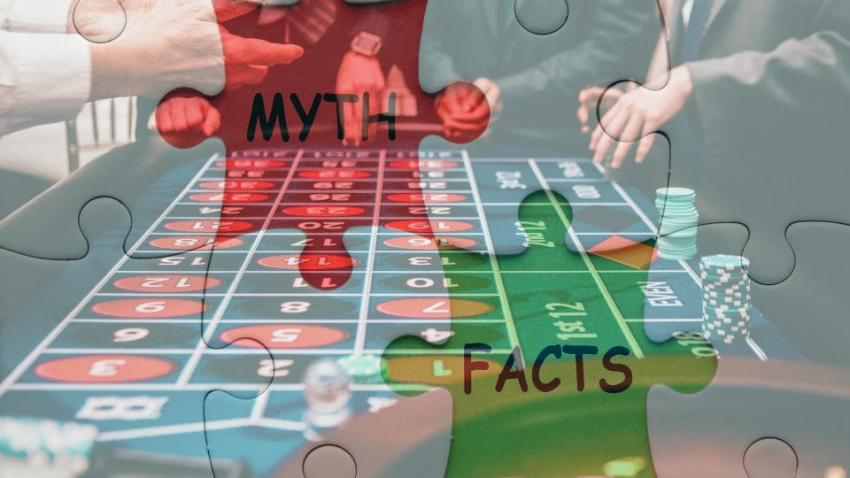Gambling myths are prevalent in today’s society, often clouding the realities of this age-old pastime. Many individuals are drawn into the world of gaming believing in common misconceptions that suggest quick riches or winning streaks, which can lead to disappointment and misinformed choices. In this article, we will delve into the truths behind these gambling myths, debunking the notions that perpetuate misunderstanding among players. By understanding the facts related to gambling, including gambling addiction facts and common gambling misconceptions, you can foster a healthier relationship with games of chance. Let’s explore these myths and arm you with essential gambling truths that will transform your perspective and gameplay experience.
When discussing gaming and betting, misconceptions often overshadow the facts. The allure of gambling lies not only in the thrill of the chase but also in the vast array of myths that surround it. Many individuals think they can consistently understand gambling outcomes or believe that the odds are influenced by luck or streaks. However, unpacking these common gambling misunderstandings can provide greater clarity and ensure a more enjoyable experience. By equipping yourself with knowledge about gambling and its associated phenomena, including gambling addiction and the true nature of risk, you’ll be prepared to approach your gaming endeavors with a more informed mindset.
Understanding Gambling Myths: The Truth Behind Common Misconceptions
Gambling myths can obscure the reality of what it means to wager money on games of chance. Many players enter casinos or log on to online platforms under the impression that they possess some sort of insider knowledge — that they can outsmart the house. This often stems from stories heard in social settings or media portrayals that celebrate unlikely winning streaks. It becomes important to differentiate between entertainment and unrealistic expectations. Recognizing that these misconceptions are born from anecdotal evidence rather than factual, statistical foundations can greatly alter a player’s approach, shifting them toward a more grounded understanding of gambling.
For instance, one of the most common misconceptions is that gambling is a reliable means of income. In reality, understanding gambling statistics reveals that while winning is possible, the odds are almost always stacked against the player. With concepts like the house edge and the random nature of games, it becomes clear that consistent financial gain from gambling is not just elusive — it’s improbable. Providing factual insights into gambling can steer players away from the dangerous territory of harmful betting habits, and instead, help them appreciate gaming as a form of entertainment.
Frequently Asked Questions
What are some common gambling myths that people believe?
Many common gambling myths can lead to misunderstandings about the nature of gambling. Some widespread misconceptions include the belief that gambling is an easy way to make money, that outcomes can be predicted based on previous results, and that casinos manipulate games to ensure player losses. Understanding gambling truths, such as the inherent house edge and the randomness of game outcomes, can greatly enhance a player’s perspective and experience.
How can debunking gambling myths help prevent gambling addiction?
Debunking gambling myths is essential in creating awareness around gambling addiction. Many people mistakenly believe that gambling addiction is merely a personal weakness, but it is a recognized psychological disorder. By understanding the real facts about gambling, including the risks associated with excessive play and the odds of winning, individuals can adopt healthier gaming habits, reducing the likelihood of developing gambling-related problems.
| Myth | Fact |
|---|---|
| Gambling is a way to make easy money | Gambling is not a viable long-term strategy for financial success due to house edge and randomness. |
| You can predict the outcome of games | Games use Random Number Generators (RNGs), making past outcomes irrelevant to future results. |
| The more you play, the more likely you are to win | Each gambling event is independent; previous outcomes do not affect future results. |
| Casinos manipulate games to ensure you lose | Casinos are regulated and must comply with strict laws to ensure fair play. |
| Gambling addiction is not a real problem | Gambling addiction is a serious psychological disorder, similar to substance abuse, affecting many individuals. |
Summary
Gambling myths are often misconstrued perceptions that can mislead players and create harmful habits. Understanding the truth behind these myths is essential for anyone looking to engage in gambling responsibly. Gambling is primarily a form of entertainment and should not be seen as an easy way to make money. Recognizing the principles surrounding the randomness of games, the independence of betting events, and the seriousness of gambling addiction can significantly enhance one’s experience. By dispelling these myths and approaching gambling with informed awareness, players can enjoy their time while keeping their financial and emotional health in check.
